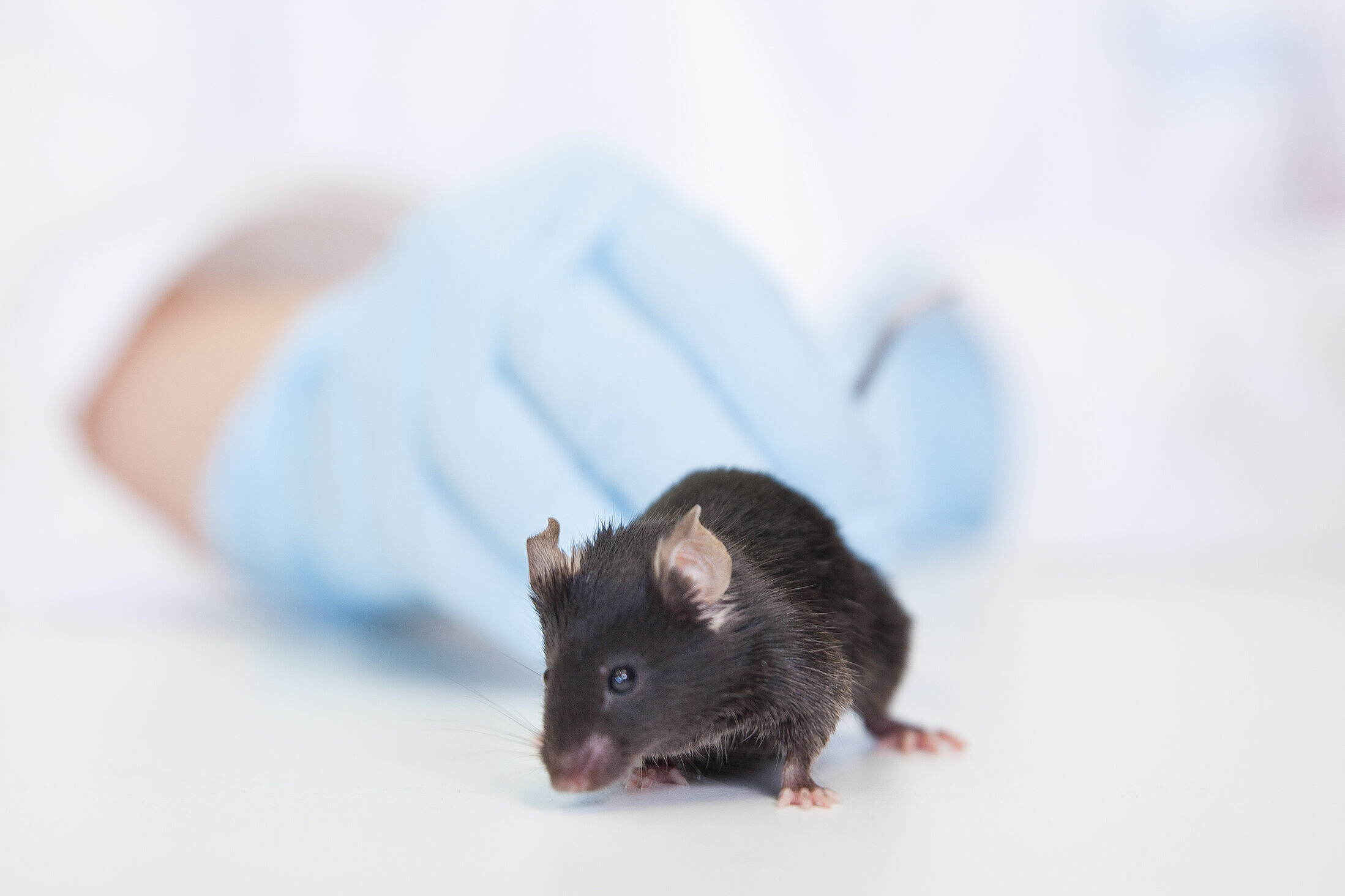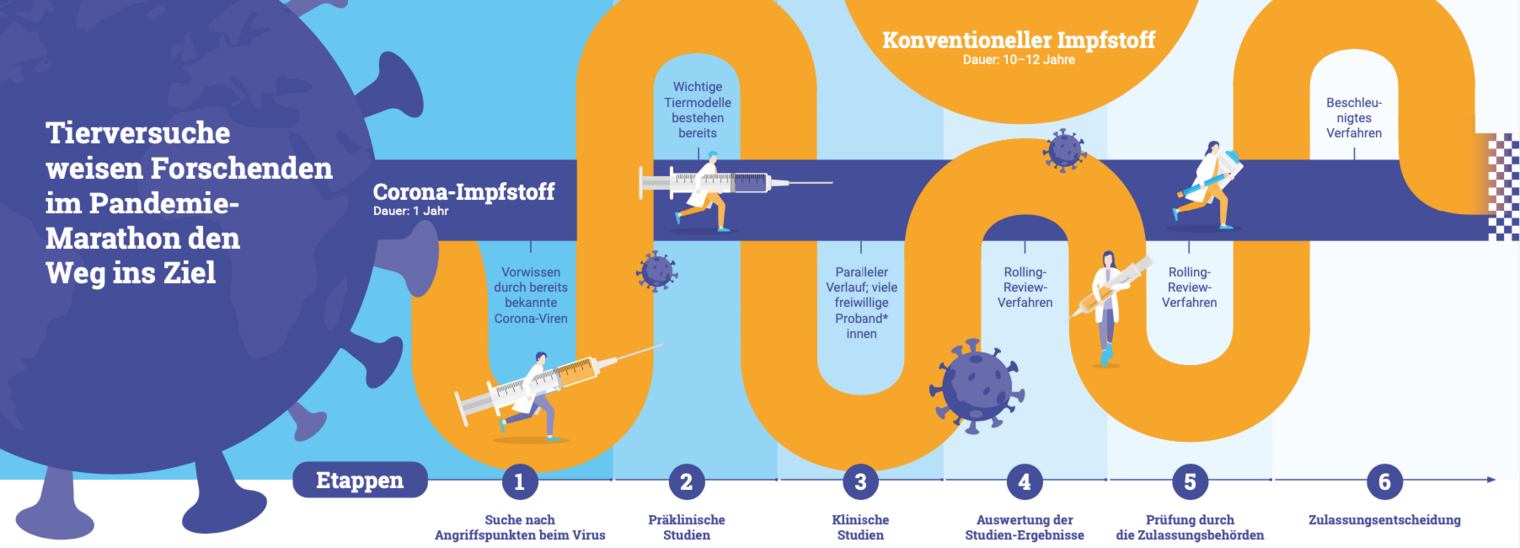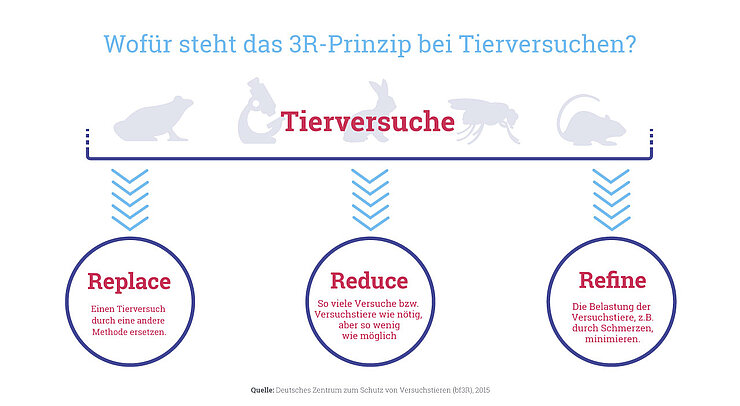How do bacteria and viruses trigger diseases? How does our immune system counter them? And what new active substances and vaccines can be used to combat dangerous infections? The scientists at the Helmholtz Centre for Infection Research (HZI) are investigating these and many other questions. In the search for new therapies for infectious diseases, they are also investigating the complex interplay of cells in the immune system and interactions of active substances. These questions cannot be answered completely with cell culture and computer models (in vitro models), which replace animal experiments. Therefore, animal experiments are currently still essential, for example, to assess the safety and efficacy of pharmaceutical compounds or vaccines.

World Day for Laboratory Animals on April 24
Animal testing in coronavirus research
The current coronavirus pandemic has brought the topic of "infectious diseases" back into the public focus. Since the beginning of 2020, the HZI has launched numerous projects to study the SARS-CoV-2 coronavirus. Animal studies are also used, for example, to assess the tolerability of virus inhibitors and determine their pharmacological properties.
Global vaccine development research efforts have yielded numerous different vaccines against SARS-CoV-2. To date, more than 10 billion doses of the vaccines against the pathogen have already been administered (as of April 2022). The rapid development of these vaccines would not have been possible without animal testing
3Rs principle
Animal testing is essential in medical research. However, it is kept to a necessary minimum. Therefore, the 3Rs principle - Replace, Reduce and Refine - is one of the most important principles in animal testing. This guideline states that animal testing should be replaced by alternative methods wherever possible (Replace). In addition, studies are designed to minimize the number of animals used (Reduce). The husbandry and study methods are designed to minimize stress for the laboratory animals (Refine).
The HZI is also aware of its great responsibility towards the laboratory animals and has committed itself to the 3Rs principle.
Why we cannot forgo animal experiments at the HZI
In their daily work, our scientists use various methods to reduce the number of animal tests. Nevertheless, for some aspects of their research they cannot completely avoid animal models, here they explain why:

Prof Ulrich Kalinke, Scientific Director of TWINCORE - Centre for Experimental and Clinical Infection Research, head of the research group "Experimental Infection Research"
"New findings in immunological research allowed the rapid development of effective COVID-19 vaccines. Novel antibody molecules will improve cancer therapy. In the development of new drugs, initial testing in humans is always critical. Which concentration of a new substance should be used in humans and will the desired effect occur? Without animal experiments, the development of new interventions would be impossible."

Prof Carlos Guzmán, head of the department "Vaccinology and Applied Microbiology"
"The development of new vaccines has been supported by the use of in vitro test systems for quite some time. Antigen-specific immune cells obtained from transgenic experimental animals form the basis. The aim is to generate as much knowledge as possible with very low numbers of animals, so that animal numbers for the identification of new vaccines or adjuvants can be further reduced (3Rs principle). However, vaccine development continues to require a functioning immune system with different cell types interacting with each other to represent the complex interactions with organs and vasculature and to identify any undesirable side effects."

Prof Luka Cicin-Sain, head of the department “Viral Immunology”
"SARS-CoV-2 infection can destroy the lungs by activating the cells of the immune system. Upon infection, some immune cells are activated locally in the lungs and travel to lymph nodes, where they activate other immune cells that travel back to the lungs to fight the infection. This results in complex interactions of dozens of cell types in the three dimensional structure of the lung, lymph nodes, or blood. We cannot develop COVID-19 cures if we do not understand these processes, and we cannot understand these complex processes by in vitro experiments alone. Therefore, animal experiments remain an indispensable tool to understand and fight infectious disease."

Prof Rolf Müller, Managing Director of the Helmholtz Institute for Pharmaceutical Research Saarland (HIPS), head of the department "Microbial Natural Products"
"In general, animal experiments should be used to the smallest extent possible and only to maintain and improve global health. In antibiotic research, only a few drug candidates are in development, while the need for new, resistance-breaking antibiotics is constantly increasing. Meaningful in vivo data from animal studies, e.g. on the tolerability of a substance, are an integral part of its translation into the preclinical phase and are thus necessary to bring new active substances into use. A tightening of animal testing regulations would significantly delay this process."

Prof Jochen Hühn, head of the department "Experimental Immunology"
"We are interested in the impact of microbiota and infections on the development of the immune system. In particular, when these events occur in newborns, they can have long-lasting consequences. We aim to develop treatment methods for this. The complex interplay of microbiota or pathogens with the immune system and the affected organs cannot be mimicked by cell or organ cultures. Therefore, we still rely on animal experiments to understand these processes."

Prof Anna K.H. Hirsch, head of the department "Drug Design and Optimization"
"In our process of developing novel anti-infectives, we strive to get as accurate an idea as possible of how the molecules we develop would behave in humans by using customized laboratory models. This makes it possible to significantly reduce the number of test animals. Nevertheless, a certain number of animal experiments is necessary, since some data generated in the living organism are currently irreplaceable."

Prof Claus-Michael Lehr, head of the department "Drug Delivery Across Biological Barriers"
"In the study of drug transport across biological barriers, complex in vitro laboratory models, e.g. with human cell cultures, can help gain detailed information about the underlying molecular mechanisms. Thus, they make an important contribution towards reducing the number of animal tests. However, until these models are established and validated, animal models remain an important tool for assessing the efficacy and safety of new drugs."
Further information
Further information on laboratory animal keeping and breeding at the HZI can be found on the page of the "Comparative Medicine" service unit.
Sources
- Infographic "Animal experiments show researchers in the pandemic marathon the way to the finish line". ©Tierversuche verstehen, CC-BY-4.0
- Infographic "What does the 3Rs principle stand for in animal experiments?" ©Tierversuche verstehen


